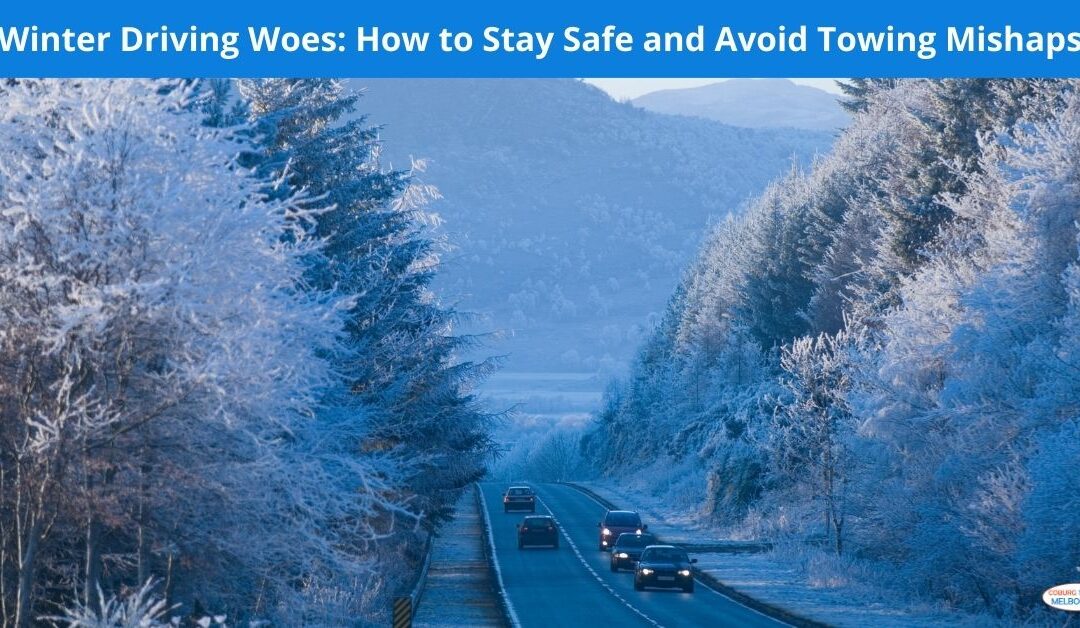Winter driving can be challenging, even for the most experienced motorists. Snow, ice, and freezing temperatures create hazardous conditions that increase the risk of accidents and breakdowns. Unfortunately, this also means a higher likelihood of needing a tow. However, with proper precautions and awareness, you can reduce the risk of accidents and avoid unnecessary towing mishaps. Here’s how you can stay safe on the road this winter.
1. Prepare Your Vehicle for Winter
Before the first snowflakes fall, ensure your car is winter-ready. A well-maintained vehicle is less likely to break down, saving you from potential towing calls.
Check your tires: Ensure they have the proper tread depth for winter roads. If you live in an area prone to heavy snowfall or ice, consider switching to winter tires.
Inspect your battery: Cold weather can drain your battery faster. Make sure it’s fully charged and replace it if it’s old or weak.
Check antifreeze levels: Ensure your engine has enough antifreeze to prevent it from freezing.
Top up windshield washer fluid: Use a winter-specific fluid that won’t freeze, and check your wipers to ensure they are in good condition.
Pack an emergency kit: Include items such as a blanket, flashlight, ice scraper, jumper cables, and snacks in case you get stranded.
2. Drive According to Weather Conditions
Many towing mishaps occur when drivers fail to adjust their driving to the road conditions. Here are some tips to avoid accidents:
Slow down: Speeding on icy or snow-covered roads increases the chances of losing control of your vehicle. Reduce your speed and give yourself more time to react.
Increase your following distance: In snowy or icy conditions, it takes longer to stop. Keep a safe distance between you and the vehicle ahead to avoid sudden braking.
Brake and accelerate gently: Abrupt braking or accelerating can cause your car to skid. Apply brakes and gas slowly to maintain control.
Use your headlights: Visibility is often reduced during winter storms. Turn on your headlights to help other drivers see you, even during the day.
Avoid sudden maneuvers: Swerving or making sharp turns on icy roads can lead to loss of control. Drive smoothly to keep your car stable.
3. Watch for Black Ice
Black ice is one of the most dangerous winter driving hazards because it’s nearly invisible. It often forms on bridges, overpasses, and shaded areas. If you suspect black ice, don’t panic. Keep your steering wheel steady, avoid braking, and allow your car to pass over it slowly.
4. Avoid Overconfidence with Four-Wheel Drive
While four-wheel drive (4WD) and all-wheel drive (AWD) vehicles offer better traction in snow, they do not make you invincible. Overconfidence can lead to accidents that require towing. Remember, 4WD and AWD help with acceleration, but they don’t improve braking or cornering. Drive cautiously regardless of your vehicle’s capabilities.
5. Know When to Pull Over
If conditions become too treacherous, it’s better to pull over in a safe location than risk an accident. If visibility is low or the road is covered in ice, find a safe spot away from traffic to wait out the storm. Use your hazard lights to alert other drivers of your presence.
6. Be Cautious Around Tow Trucks
If you do find yourself needing assistance, exercise caution when a tow truck arrives. Winter weather often leads to more roadside accidents, and tow truck operators face additional risks working in hazardous conditions. Keep these points in mind:
Stay in your vehicle if possible: Unless instructed otherwise by the tow truck driver, stay inside your car where it’s safer.
Move your vehicle to a safe spot: If your car is still operable, try to move it off the road or to the shoulder to prevent further accidents.
Be visible: Turn on your hazard lights and ensure your car is visible to other drivers, especially if you’re waiting for assistance in low-visibility conditions.
7. Know Your Towing Rights
Winter towing mishaps are not only about accidents—they can also involve disputes over towing fees or services. Familiarize yourself with your local laws regarding towing charges and towing company practices. Always ask for a clear explanation of fees before your car is hooked up to avoid surprises.
Conclusion
Driving in winter requires extra caution, patience, and preparation. By following these tips, you can reduce your risk of accidents and towing mishaps. Stay aware of the road conditions, drive carefully, and ensure your vehicle is in top shape for the cold months ahead. If you do find yourself in need of a tow, remember that the best approach is to remain calm and prioritize your safety above all.
If you are in Brunswick, Victoria 3056, and looking for a car removal service, this is the best way to visit us.
Coburg Towing Melbourne
31 Cameron St,
Coburg VIC 3058
03) 9999 7525


Recent Comments